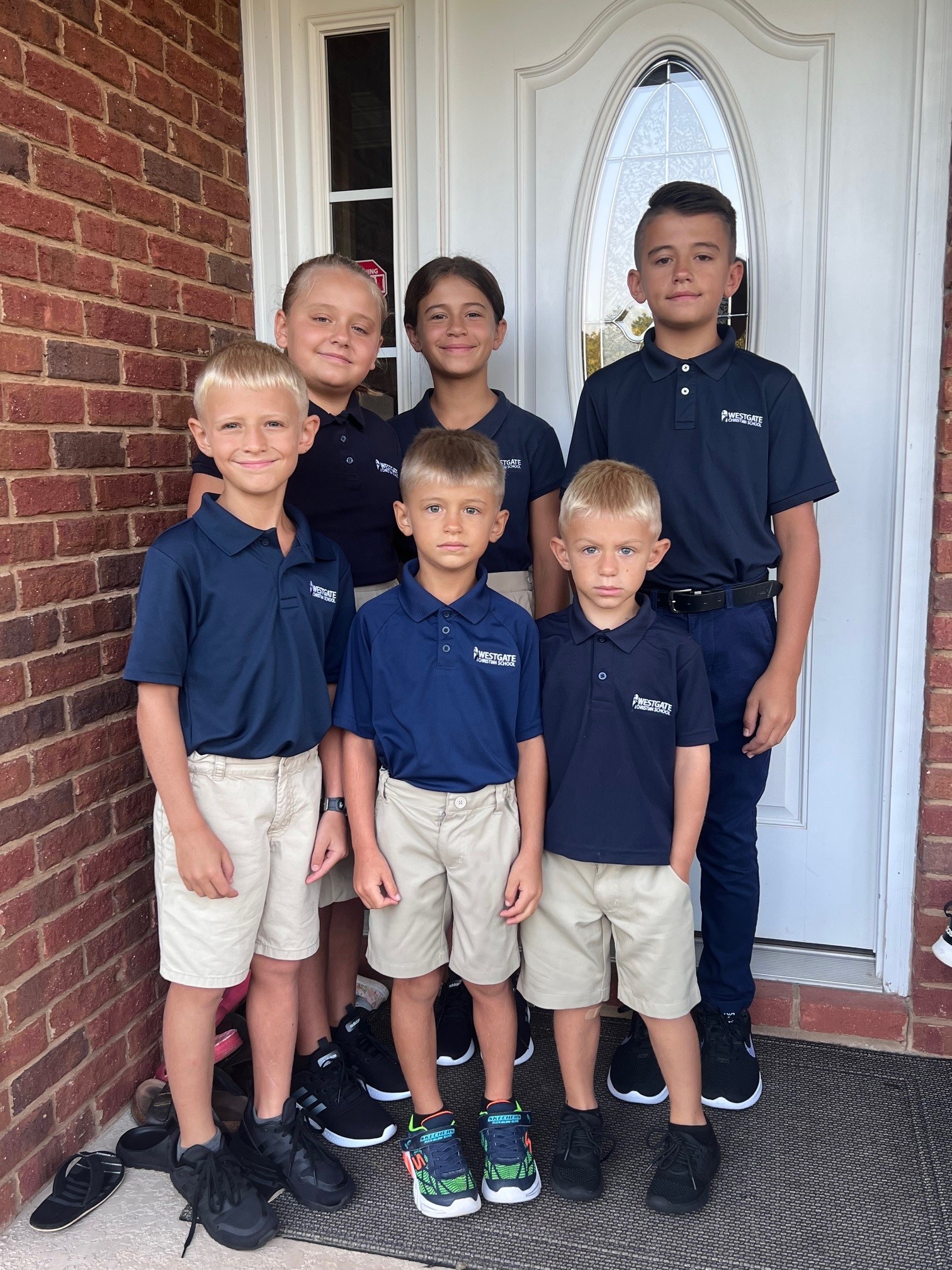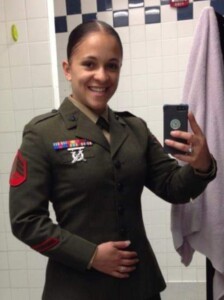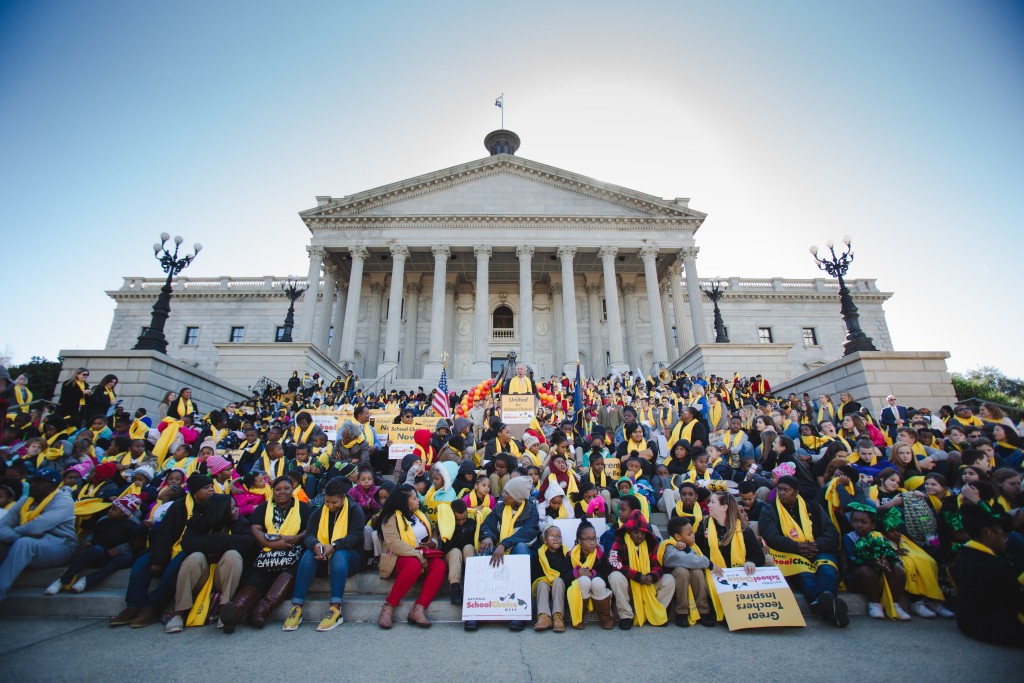
When Constantine and Aliona Shulikov left the former Soviet Union as children to escape religious persecution three decades ago, public education there was one-size-fits-all. Students attended assigned cookie-cutter government schools and took the same classes, with the same curriculum, with no room for individuality.
“Parents played no role and had no input in their children’s education,” Constantine said. “Alternatives such as private schools or homeschooling didn’t exist and wouldn’t even cross a parent’s mind.”
The freedom Constantine and his wife gained from becoming United States citizens made personalized education for their children even more precious.
Constantine, whose job involves designing and sometimes leading training programs for a large corporation, especially recognizes that no one way of learning works best for everyone.
After moving from Oregon to the South Carolina foothills to be close to family, they sought the best education for their five school-aged children. Private Christian schools, though attractive, were financially out of reach. So, for the older kids, they chose a charter school that specialized in environmental sustainability. The two youngest were homeschooled. Though not ideal, the arrangement worked.
They had heard of education choice scholarships in neighboring North Carolina. They wished South Carolina had something similar.
“We joked that maybe we should buy something right across the border so our kids could participate in the scholarship program,” Constantine said. Having access to such programs, he said, “was like a dream.”
Last year, their dream came true when the South Carolina General Assembly passed a new scholarship program. Under the Education Trust Fund Scholarship program, families who met income-based thresholds received $6,000 per student in an education savings account. After four of their five school-age children qualified for scholarships, the Shulikovs transferred them to Westgate Christian School. The school has an enrollment of 260 students ages 3 through 12th grade and is affiliated with Westgate Baptist Church, which drew its name from a nearby shopping mall built in the 1970s. Its smaller class sizes, faith-based instruction, and overall sense of community made it the perfect fit for all the kids, who range in age from 5 to 13 and whose diverse interests include books, sports, and art.
“They all love school and make friends very easily,” Constantine said. “It was a perfect fit”
The new school year got off to a great start. However, less than two months later, the South Carolina Supreme Court struck down the part of the program that allowed parents to spend their funds on private school tuition.
The ruling said the provision ran afoul of the state constitutional ban on public funds directly benefiting religious or private schools. Even though the funds allowed families to choose from a plethora of options that included public schools, the state’s high court called that argument “window dressing” and struck down the use of funds for private school tuition. Families are still allowed to use scholarships to pay for other state-approved uses in the program such as curriculum, tutoring and therapies.
Constantine still remembers the text from his wife the day the state Department of Education emailed that private school tuition payments would end immediately to comply with the Supreme Court ruling.
“It was a pretty big blow when we first heard the news,” said Constantine, who described the timing of the ruling as “jarring” and said his older kids expressed disappointment when he and his wife told them they might have to return to their former school.
Soon after the ruling, Constantine appeared along with other scholarship parents in videos produced by the Palmetto Promise Institute, a think tank that supports education choice. His public plea to save the program caught the attention of attorneys at the Institute for Justice, a national public interest law firm that supports education choice issues. He agreed to partner with the law firm as one of two plaintiffs in a lawsuit against the state.
The petition, which will be considered by a court that includes a replacement for the retiring anti-choice chief justice, asks the state high court to restore the program. It challenges the state ban and argues it violates the U.S. Constitution and U.S. Supreme Court. That includes the right to choose a private school.
“The state is penalizing parents who choose private schools for their children, a choice protected by the U.S. Constitution. The state cannot point to the South Carolina Constitution as justification for this discrimination, because the federal Constitution prohibits it,” IJ Senior Attorney Michael Bindas said.
Constantine, who is his household’s sole breadwinner, got a reprieve when wealthy donors contributed to a fund to cover scholarship families’ tuition costs temporarily. South Carolina lawmakers are already working on legislation that would rely on state lottery proceeds, which are not classified as public funds, to pay for the program.
Constantine, who said he has never sued anyone in his life, called it “an opportunity to stand up for my kids’ education.” He said IJ’s willingness to fight for the families, along with what’s going on in the legislature, gives him and his family hope.
“There’s some real emotion,” he said. “It was like a high and then a low, an unexpected blow. It was like getting the rug pulled right out from under you.”
The big news: Yamilette Albertson Rodriguez could hardly contain her excitement. A Philadelphia billionaire whose name she had never heard before had donated $900,000 to cover tuition for her three kids and other students whose state scholarships had been ripped away by a South Carolina Supreme Court ruling.
 “This is awesome!” said Rodriguez, a 37-year-old manager at a Sherwin-Williams store in the Lowcountry town of Bluffton near Hilton Head Island. “I can breathe again.”
“This is awesome!” said Rodriguez, a 37-year-old manager at a Sherwin-Williams store in the Lowcountry town of Bluffton near Hilton Head Island. “I can breathe again.”
Jeffrey Yass, a businessman and philanthropist worth $49.6 billion,. co-founded Susquehanna International Group, a Wall Street trading giant. Yass and his wife, Janine, have poured a growing share of their fortune into education causes. They most recently funded the Yass Prize, a competitive program that awarded hundreds of thousands of dollars in grants and an annual $1 million top prize to education innovators.
The Palmetto Promise Institute, which championed the South Carolina Education Scholarship Trust Fund program when state lawmakers passed it last year, broke the news Thursday morning that Yass’ donation would cover all participating students’ private school tuition through Dec. 31. The think tank is seeking donors to help cover costs until the legislature can approve changes that help the program pass constitutional muster.
"(Some of these schools) would be taking huge financial losses, especially some of the schools that took dozens of families, dozens of these ESA kids," Wendy Damron, the institute’s president and CEO told the Post and Courier. "They would take this huge financial hit and maybe be hesitant to try it again. So, he was just making an investment in our kids in South Carolina."
Catch up quick: The Education Scholarship Trust Fund was the product of two decades of efforts to pass an education choice program that was not limited to students with unique needs.
 Low-income families approved for the program received $6,000 per child that parents could use for 15 different categories of expenses, including tutoring, therapy, and tuition. Months after its enactment, a group that included the South Carolina Education Association sued the state, arguing that the program violated the South Carolina Constitution’s ban on public funds being used for the direct benefit of any religious or other private educational institution. Attorneys for the state and for the families countered that the direct benefit went to parents, not institutions, and noted the existence of similar programs for preschoolers and college students.
Low-income families approved for the program received $6,000 per child that parents could use for 15 different categories of expenses, including tutoring, therapy, and tuition. Months after its enactment, a group that included the South Carolina Education Association sued the state, arguing that the program violated the South Carolina Constitution’s ban on public funds being used for the direct benefit of any religious or other private educational institution. Attorneys for the state and for the families countered that the direct benefit went to parents, not institutions, and noted the existence of similar programs for preschoolers and college students.
The ruling: On Sept. 11, 180 days into the school year, the state Supreme Court issued a 3-2 ruling that struck down the provision allowing the scholarships to go toward tuition, saying it didn’t matter that the parents were the ones who chose where to spend money from among a variety of schools.
The fallout: The decision left parents, whose household incomes were 200% above the federal poverty line, scrambling for alternatives if they couldn’t afford the tuition. Education choice supporters pulled out all the stops to keep the program afloat. The statewide Catholic diocese started the St. Rita Relief Fund to raise money toward the tuition of scholarship students at their schools. Palmetto Promise Institute posted video interviews of affected families. The state education superintendent asked the court to let the ruling take effect after the current school year. The governor asked the court to reconsider the ruling. The court said no to both requests. Lawmakers, who have the power to call a special session, decided not to, pledging to take up the issue in January.
Rodriguez, a Marine veteran who had served in counter-piracy operations in the Middle East, vowed to find extra work on top of her 45-hour job at the paint store to keep her teenage daughter and first-grade twin sons at the Anglican school where they were thriving.
“I started to really pinch pennies,” said Rodriguez, a single mom who also supports her 65-year-old father as he battles cancer and other health issues. To make things worse, Hurricane Helene tore shingles off her roof. She said insurance wouldn’t cover the damage, leaving her to pay for repairs herself.
After a recent food pantry visit, her daughter asked, “Mom, does this mean we’re poor?”
“It just means we’re hurting right now,” Rodriguez replied. Today’s news, she said, was just what her family needed.
“My daughter will be so happy,” she said.

South Carolina students show their support for education choice at the state Capitol during last year's National School Choice Week. Gov. Henry McMaster, standing in the center, supports giving parents the power to choose the best learning options for their children. The 2023 National School Choice Week celebration is set for Jan. 22-28. Photo courtesy of National School Choice Week
Should schools do more to train students for the workforce, or focus on the three R’s? South Carolina K-12 officials have been debating that very question lately. A few education experts from around the country also chimed in, according to a local report.
State lawmakers, though, are moving in a different direction that focuses on the real experts: parents.
Last week, the Greenville News profiled several area schools that emphasize science, technology, engineering and math (STEM) in partnership with local businesses and engineering firms. The exposure to qualified professionals is laudable, and Greenville schools’ superintendent Burke Royster says he doesn’t want elementary students to be “locked in” to a certain career in second grade.
Yet Royster’s position has not forestalled debate. According to the News, some observers say schools shouldn’t shoulder the responsibility for training students with specific job skills, while others say schools should do more to “return value to the American people” than to “return value to shareholders.”
Giving students a better understanding of potential jobs before they enter the workforce is valuable, and basic economics teaches that returning value to shareholders results in returning value to the American people — because many of us are, of course, either shareholders or employees who benefit from investments or both.
But the real problem is that educators are asking the right questions about the nature of education to the wrong people.
Fortunately, state lawmakers are considering a proposal again this year to create education savings accounts, which would create private accounts that parents can use to buy education products and services for their children. Families can then solve for themselves the age-old question about schools and the workforce that elites are debating for them.
Lawmakers almost adopted a similar proposal last year, but negotiations over the scope of the proposal failed near the end of the legislative session. State lawmakers who supported the effort last year and again this session deserve credit for minding the details with such a proposal.
This year’s proposal, which is being debated and revised in committee now, would create an “Education Scholarship Trust Fund” and allow children from low-income families and children with special needs to access the accounts. Parents could use the accounts to purchase textbooks, pay private school tuition, pay for industry certification exams, education therapy and more — all at once or in different combinations, if they chose. The latest revisions to proposal would require account holders to take the state test, language that spoils an otherwise promising proposal and a provision that is sure to scare parents and schools away from the accounts.
These accounts are quickly spreading across the country. Last year, Arizona lawmakers expanded their accounts so that every child in the state can apply. West Virginia offers accounts to nearly every child in the state. Florida, Tennessee, North Carolina, Mississippi, Missouri, Indiana, and New Hampshire also offer families and students the option to choose how and where their children learn with similar accounts.
South Carolina’s proposal eases the state into an account-style system, capping participation at 5,000 children in the first three years and limiting participation to 15,000 children after that. After Arizona expanded its eligibility provisions for the accounts, the state department of education received some 22,500 new applications, so South Carolina officials should be prepared for more families to express interest than the cap allows. The U.S. Department of Education has reported that traditional public schools are enrolling 1.4 million fewer students post-COVID than before the pandemic, so parents are clearly looking elsewhere.
Last fall, Gallup found that 55 percent of Americans were dissatisfied with K-12 education in the U.S., a sharp increase in dissatisfaction since 2020. When asked why they were dissatisfied, more than one-quarter of respondents said they were not satisfied with school curriculum or the subjects that schools were choosing to focus on. Still another 9 percent said students were not learning life skills, which means that some families value job training ahead of traditional academic skills, with others valuing math and reading more.
Education officials cannot — and should not — settle this question for every family. South Carolina has another chance to give families the ability to choose what is best for children, and while school officials can discuss the merit of their different instructional approaches, no one should be debating whether parents should have the ability to choose between them.